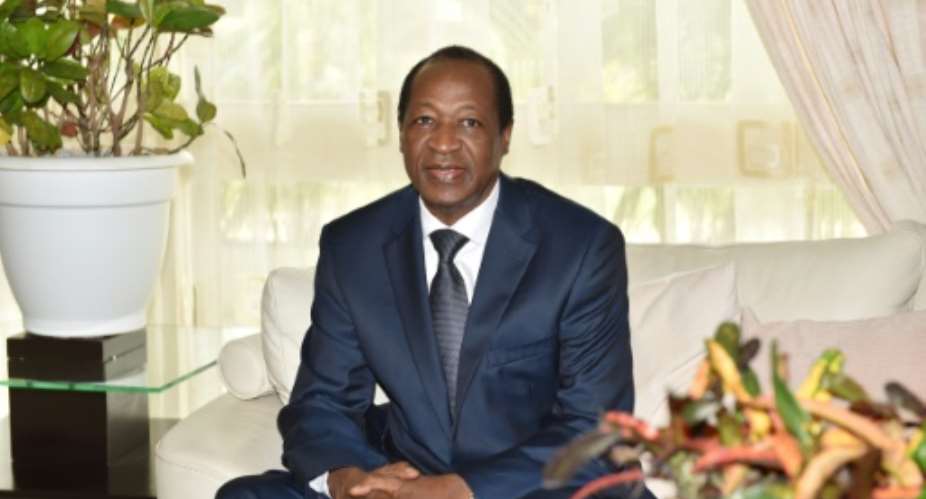Defence lawyers on Saturday told a court that the prosecution had failed to provide evidence for the murder charges faced by their clients in a landmark trial over a failed 2015 coup in Burkina Faso.
"The prosecution has not provided any evidence that can establish a link between the murders, the shots and the wounds and our clients," said Issaka Badini, representing Staff Sergeant Lawoko Mohamed Zerbo, the first of 84 defendants to be questioned by the court in the capital Ouagadougou.
"The prosecution has no evidence... and tries to reclassify the facts as a crime against humanity," added Olivier Yelcouni, another defence lawyer.
The 84 defendants are on trial over the September 2015 attempt to overthrow the transitional government which took power after President Blaise Compaore was ousted a year earlier.
Behind the coup was an elite unit of presidential guards loyal to Compaore, who took the country's leaders hostage before being thwarted by street protesters backed by the army, which attacked the plotters' barracks.
Fourteen people died and 270 were injured in the unrest.
The defendants are being tried on a range of charges including treason, undermining state security and murder in a case seen as a test for the judiciary in the West African country.
Among them are two generals thought to be the ringleaders: Gilbert Diendere and Djibrill Bassole, who served as foreign minister under Compaore.
During Saturday's hearing, the prosecutor's office acknowledged the absence of ballistics analysis in the case, but said a doctor had produced a forensic report determining that 13 people had been shot dead and 42 wounded.
Only a ballistics analysis, however, would have "clearly been able to determine the trajectory of the bullets, their nature and the type of weapon used", said Babou Bama, yet another defence lawyer.
The trial opened on February 27, only to be suspended just hours later when the defence team walked out in protest over the legality of the military court, which is made up of two professional magistrates and three soldiers sitting as assessors.
The case was adjourned until Monday.





 We’ll no longer tolerate your empty, unwarranted attacks – TUC blasts Prof Adei
We’ll no longer tolerate your empty, unwarranted attacks – TUC blasts Prof Adei
 Bawumia donates GHc200,000 to support Madina fire victims
Bawumia donates GHc200,000 to support Madina fire victims
 IMF to disburse US$360million third tranche to Ghana without creditors MoU
IMF to disburse US$360million third tranche to Ghana without creditors MoU
 Truck owner share insights into train collision incident
Truck owner share insights into train collision incident
 Paramount chief of Bassare Traditional Area passes on
Paramount chief of Bassare Traditional Area passes on
 Two teachers in court over alleged illegal possession of BECE papers
Two teachers in court over alleged illegal possession of BECE papers
 Sunyani: Victim allegedly shot by traditional warriors appeals for justice
Sunyani: Victim allegedly shot by traditional warriors appeals for justice
 Mahama vows to scrap teacher licensure exams, review Free SHS policy
Mahama vows to scrap teacher licensure exams, review Free SHS policy
 Government will replace burnt Madina shops with a new three-story, 120-store fac...
Government will replace burnt Madina shops with a new three-story, 120-store fac...
